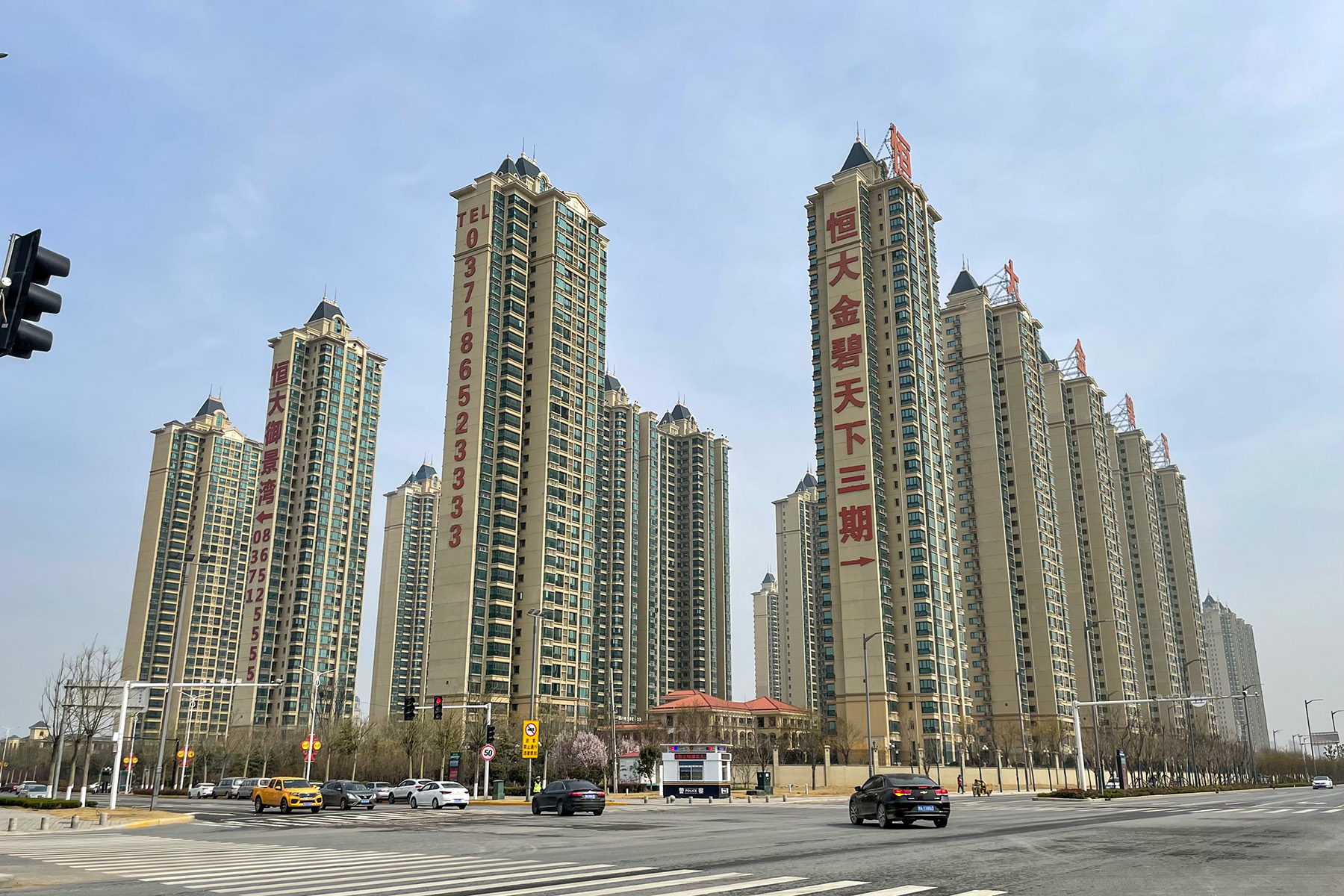Indicators of financial strain at a major asset manager in China are causing investors to feel uneasy about the potential spread of issues from the country’s struggling property sector. This has reignited discussions about the possibility of a scenario similar to the “Lehman moment” occurring in the world’s second-largest economy.
The focus of concern now centers on Zhongrong International Trust, which had approximately $108 billion in assets under management by the close of 2022. Recently, four trust products managed by Zhongrong missed interest and principal payments worth about $14 million to three publicly listed Chinese companies, according to information disclosed on stock exchanges. Zhongrong, headquartered in Beijing, has been a key financier for numerous real estate developers, supporting their construction projects.
Zhongrong is a component of a larger financial conglomerate called Zhongzhi Enterprise Group, which oversees various wealth management enterprises. If the repayment challenges and defaults escalate, it could jeopardize numerous investment products that were sold to various companies and affluent individuals in China.
Reports on social media reveal that some individual investors have not received the promised payments from Zhongrong’s products and those of other units within Zhongzhi. These investors have registered complaints with local authorities. Neither of the companies has publicly addressed these allegations, and they have not responded to requests for comments.
China’s trust industry, which held a total of $2.9 trillion in assets under management as of March 31, has traditionally served as a funding source for property developers. These trust funds generally secure funds from wealthy individuals and companies to invest in stocks, bonds, real estate projects, and other assets. Analyst Xiaoxi Zhang from Gavekal Research noted that Zhongzhi’s lack of regular disclosures, combined with its private nature, has led to uncertainty among investors regarding the assets they are invested in.
The troubles faced by Zhongzhi Enterprise Group, coupled with the financial difficulties experienced by the prominent Chinese property company Country Garden Holdings, have sparked concerns about China’s shadow banking system and its intricate ties to the property sector. While there are worries about a “Lehman moment” occurring, which could threaten China’s financial stability, regulatory oversight might mitigate this possibility.
These concerns have compounded broader anxieties among investors about China’s struggling economy and its beleaguered real estate market. The prices of numerous Chinese stocks and corporate bonds have experienced declines in recent times. In addition, Hong Kong’s Hang Seng Index, heavily populated by Chinese companies, recently entered bear market territory after dropping over 20% from its recent peak.
Economists and research analysts have long debated the potential triggers for a crisis in China akin to the 2008 collapse of Lehman Brothers, which had far-reaching effects on the global financial landscape. Events such as last year’s mortgage disturbances in China and the bond defaults of China Evergrande Group in 2021 have also sparked concerns about the interconnectedness of China’s financial system. According to a report by Nomura, China’s property downturn has already led many developers to default on their debts, causing numerous trust funds to reduce their exposure to the sector.
Despite this, China’s trust funds still retain a significant exposure of around $155 billion to the property sector as of the first quarter. Nomura suggests that this exposure is now under significant threat, given the larger exposure of these funds to financial markets, which increases the risk of contagion.
Established in 1987 under a different name, Zhongrong underwent changes in ownership, including a significant stake acquired by Zhongzhi Group in 2004. The unit obtained a financial license in 2007 from China’s banking regulator. Its largest shareholder is a state-owned textile company. By 2014, Zhongrong’s trust assets under management had reached approximately $100 billion. The company enticed investors with high yields, offering annual returns of up to 15% at one point.
More recently, Zhongrong’s advertised returns hovered around 7% to 8% annually. Marketing documents for various trust funds indicated that investors who committed more funds stood to gain higher returns. These funds had the potential to invest in bank deposits, stocks, corporate bonds, and other wealth management products. Customers were given the option to redeem their investments in six months or a year, or to keep their investments locked in for longer periods.
Certain trust funds were designed to provide loans to property companies. Zhongrong would lend to developers at higher interest rates compared to bank loans, obtaining shares of the developers’ subsidiary project companies that oversee home construction as collateral.
The slogan “Supporting the real economy is the responsibility and opportunity of trust in the new era” was prominently displayed on Zhongrong’s English website.
In 2020, Zhongrong’s trust funds allocated 18% of their assets to the property sector, according to the company’s annual reports. This exposure decreased to around 11% by 2022. A report from credit ratings firm S&P Global noted that deteriorating macroeconomic conditions had negatively impacted credit quality for many property developers associated with Zhongrong. The firm had a BB+ rating, indicating a high speculative-grade rating.
Although trust companies are not legally obligated to compensate investors in their asset management products, S&P noted that there is still pressure for the sector to address customer investments that are not performing well. In May of this year, Zhongrong’s rating was withdrawn at the company’s request.
(Source: Rebecca Feng | Weilun Soon | Wall Street Journal)









